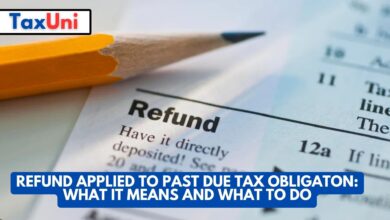Foreign Earned Income Exclusion
The foreign earned income exclusion allow taxpayers to be exempt from the income they earned in a foreign country. The foreign income exclusion can only be exempt for up to a certain amount.

Contents
Are you an American citizen or a green card holder living and working abroad? You may qualify to exempt some of your foreign-earned income from US taxation.
This exclusion can be utilized by both you and your spouse. Proper use may help reduce or even eliminate your US tax bill.
How do I qualify for the FEIE?
The Foreign Earned Income Exclusion (FEIE) was designed to ease the tax burden for US expats living and working abroad. Under FEIE, employees of US companies can exempt foreign-earned income from US taxes, often leading to a total reduction in their US tax bill – usually close to zero.
Claiming the FEIE can be challenging. Generally, American expats must meet two qualifying tests: the Bona Fide Residence Test or the Physical Presence Test.
To pass the Bona Fide Residency Test, you must be a legitimate resident of another country for at least one full year. To do this, you must spend at least 330 full days away from the United States during that period and be present in that foreign country each day.
If you meet the Bona Fide Residency Test, but your employer reassigns you before fulfilling all requirements for that year, this could disqualify you from claiming the FEIE. In such cases, it would be necessary to select another 12 months to be eligible for the highest FEIE limit available.
It is always wise to seek professional assistance when preparing your US expat tax returns. In particular, if you are self-employed or operate a business through a non-US corporation, be aware of the scaleback rule, which limits what can be excluded by using the Foreign Earned Income Exclusion (FEIE).
How much can I exclude?
The IRS sets high standards for the taxation of foreign-earned income. To be eligible to file your tax return for a given year, you must meet one of three categories: active foreign resident, passive foreign resident, or exempt foreign entity. Meeting these requirements can be daunting when living the expat lifestyle, as the maximum exemption amount in 2025 dollars is $108,700. However, with some planning and the right tools in your arsenal, filing your return on time and within budget should become much smoother.
When can I qualify for the FEIE?
The Foreign Earned Income Exclusion is one of the many ways the IRS helps expats reduce their US tax liabilities. It allows them to exclude a certain amount of foreign-earned income from US taxes, provided it exceeds a specific limit each year.
The FEIE also assists expats in avoiding double taxation on their foreign-sourced earnings, which is particularly beneficial to US expats working in countries with higher tax rates than the United States.
To be eligible for the Foreign Earned Income Exclusion, you must either be physically present in a foreign country for at least 330 full days or meet the bona fide residence test. The latter requires having a tax home in that country and living there throughout your tax year.
However, this requirement can be complex and challenging to ascertain. To get the best advice in your case, speak with an expat tax professional for guidance.
There are multiple ways to qualify for the Foreign Earned Income Exclusion (FEIE), such as meeting certain conditions such as having bona fide residence or physical presence tests and taking advantage of the foreign housing deduction. While using FEIE can reduce your US tax liability abroad, it’s wise to consult an expat tax professional beforehand about all available options.
Foreign tax home
If you have worked abroad and are a citizen or resident of the United States, the Foreign Earned Income Exclusion can help certain exempt income from US tax liability. However, it’s essential to remember that this is just one of many available tax benefits you may claim.
Before applying for the Foreign Employee Identification Scheme (FEIE), you must confirm that you live and work abroad for at least part of the year. You can meet this requirement by being a bona fide resident for an entire tax year or by satisfying the physical presence test.
The IRS recognizes your primary place of business or employment as your tax home, regardless of where your family resides. If you live in New Jersey but work in New York City, that would be considered your home base for taxation purposes.
Another factor to consider is whether your temporary work engagement will last at least a year. If an assignment may extend beyond this timeframe, it can be classified as an indefinite arrangement and cannot be treated as your tax home.
Utilizing the FEIE can save you considerable money on your US taxes. But you must claim all applicable benefits and allocate your income appropriately.
Foreign-earned income
The Foreign Earned Income Exclusion (FEIE) allows you to exclude up to an amount of your foreign-earned income from US taxation, potentially cutting or eliminating US taxes in half.
However, tax law is an intricate area that necessitates precision. An oversight could result in an audit costing tens of thousands of dollars and taking years to resolve.
That is why it’s critical to file your FEIE correctly. Otherwise, the IRS could deny your claim and levy a penalty against you for non-compliance.
The Foreign Earned Income Exclusion or Deduction (FEIE) is a two-part form that must be filled out and attached to your federal tax return. It requires you to list your foreign-earned income, calculate the FEIE value, and decide whether you plan to claim either an exclusion or deduction for housing costs.
You can claim the FEIE by passing either the bona fide residence test or the physical presence test. Giving one of these tests makes you eligible to exclude part of your foreign-earned income from gross income for the year.
Self-employment income
Self-employment is earning income from service, trade, or business paid directly by customers and clients. While this can be an attractive way of making a living, self-employment carries more tax liabilities than working for an employer.
Self-employed individuals must file an annual tax return and pay estimated taxes quarterly – similar to Social Security and Medicare taxes that employees must pay.
In addition to these taxes, self-employed people must also pay a 15.3% self-employment tax. This fee serves primarily to fund Social Security and Medicare benefits.
Many self-employed Americans living abroad worry about taxes, which can present serious difficulties when filing their US returns. Fortunately, some helpful tax breaks may reduce or eliminate these obligations.
One such tax break is the Foreign Earned Income Exclusion (FEIE). This eliminates specific amounts of income earned while an American is abroad based on work performed or services provided while engaged in foreign operations.
Not foreign earned income
The Foreign Earned Income Exclusion (FEIE) is essential to file US taxes for expats. It allows you to exclude certain portions of your foreign-earned income from taxable income and may prevent you from being taxed twice on the same income.
The FEIE only applies to wages and self-employment income, which is income received from services you perform as an employee or independent contractor. Passive sources such as social security benefits, pension income, rents, dividend income, interest, gambling winnings, capital gains, annuities, and alimony payments are not exempt.
To qualify for the FEIE, you must meet the Bona Fide Residence and Physical Presence tests. This requires having your primary residence in the United States and traveling abroad for at least 330 full days per year.
Foreign earned income is the income you receive for services performed in a foreign country during periods when you meet either the bona fide residence test or physical presence test. It includes wages, salaries, professional fees, and other amounts received for personal services performed abroad. Furthermore, noncash income for specific items such as homes or cars, allowances, and reimbursements can also be included.
For the 2025 taxes (you’ll be filing in 2024), the exclusion limit is $105,900. For example, if you earned $200,000 foreign income, only the excess amount of the exclusion limit is going to be taxed by the United States. However, the type of income earned is also important. If you earned income through either one of the following, you are still liable to pay taxes.
- Interest
- Dividends
- Capital gains
- Pension
- US-sourced income
Any income that is related to the United States and its territories is going to be taxable and won’t be counted towards the exclusion limit.
How to determine how much foreign earned income is excluded?
To figure out the income you can exclude from US taxes, you must fill out Form 2555. This is a fairly long tax form that requires hours of book-keeping. You may want to file this tax form with a tax professional rather than filing it yourself. If you qualify under physical presence test though, Form 2555 is going to be relatively easy to file.
As for how to use Form 2555 to figure out the foreign earned income exclusion, head over to Part 7 of the form. However, you will need to fill out the previous part of Form 2555 to determine this. One thing that you need to pay attention to when filing Form 2555 to calculate foreign earned income exclusion is lines 38 and 39 where the number of days that qualify are entered.
Form 2555 — Foreign Earned Income for the 2025 tax season must be attached to your federal income tax return. Otherwise, the foreign earned income that normally would be excluded from your taxable income will be taxed. Prevent this from happening and avoid paying more tax than you actually liable to by filling out the 2555 properly and determine how much foreign earned income can be excluded.





